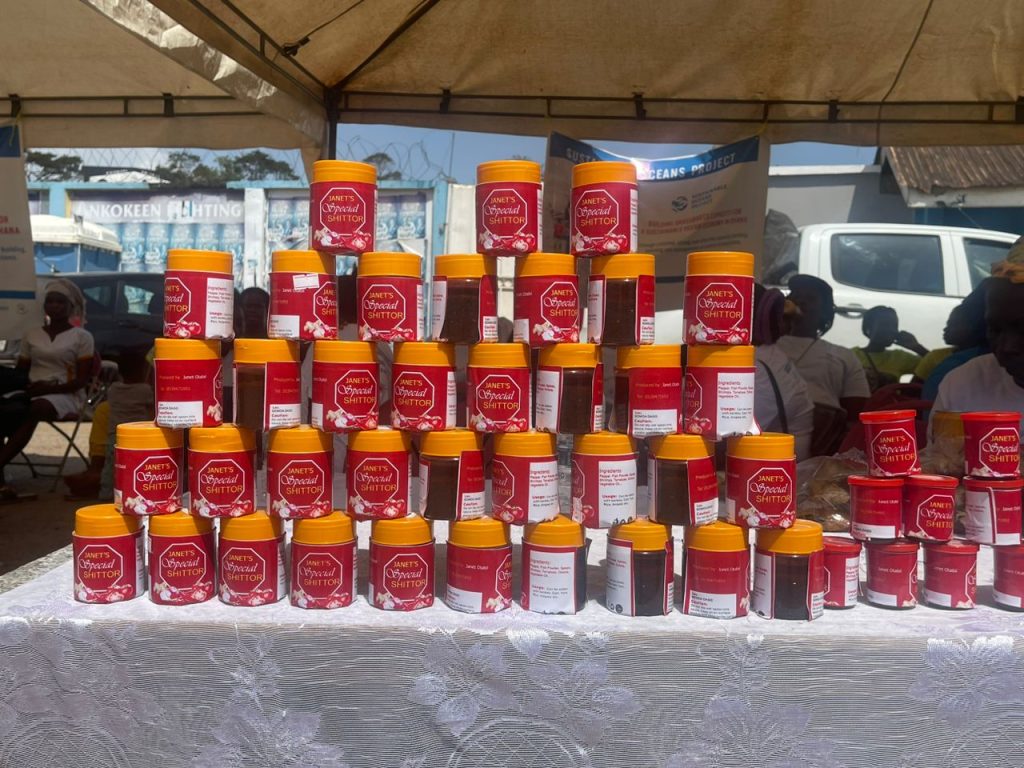By Victoria Agyemang
Cape Coast, Nov 07, GNA- With oceans threatened from resources pollution, climate change, and unsustainable practices, Mr Nicholas Smith, Project Manager at CEWEFIA urged stewards of marine l resources, to combine forces and take bold actions to protect and conserve marine ecosystems.
This would ensure a future where fishing was not just an economic activity but a sustainable practice.
“We must strive to ensure the good health of our oceans and the long-term viability of our industry,” Mr Smith advised.
Delivering a speech on behalf of the Executive Director of CEWEFIA, Mrs Victoria Churchill Koomson, at the opening of a two-day Central Regional Fish fair on Wednesday, Mr Smith noted that fishing had been an integral part of the culture, economy, and livelihoods of any people.
The fair is on the theme: “Fisheries for Tomorrow: Innovation, Value Addition, Safe fish Certification, and Sustainable Practices for a Healthier Oceans”.
The fair featured activities as seafood cooking competition and networking sessions.
It organised by the CEWEFIA, Environmental Justice Foundation, HEN Mpoano and sector players with Norwegian Government.
Mr Smith said innovation had become a critical tool for transforming the fisheries sector with improved fishing technologies to advanced processing methods.
He stated further that the sector remained the cornerstone for local and national economy, providing sustenance, employment, and income for millions of Ghanaians.

The value chain in the fisheries sector, he indicated was however, long and diverse, and there was immense potential for value addition through processing, packaging and marketing practices to ensure that fish and seafood products met both local and international standards, creating new opportunities for export and boosting competitiveness.
This would be realised through the introduction of modern techniques, improved hygiene standards and adaptation of sustainable practices to enable small-scale fish processors to add more value to fish products and extend their shelf life.
On Safe Fish Certification, Mr Smith said that ensuring quality and trust was paramount because as consumers become more health-conscious and discerning, the demand for safe, high-quality fish and seafood products had never been greater than now.
There was therefore the urgency for Safe Fish Certification and Licensing Scheme to ensure that fish products met the appropriate safety, hygiene, and environmental standards, required by both local and international markets.
The oceans were their life-support system, but it was increasingly under threat and the world must recognise that sustainability was not just a buzzword, but an urgent imperative.
“Sustainable fishing techniques would be achieved using responsible regulations, adherence to seasonal sustainable regulations, and reducing bycatch and ensuring the long-term health of the ocean.
He called on all stakeholders to work together to innovate, embrace sustainable practices, enhance value of fish products, to leave a legacy of healthy oceans for future generations.
Maame Adwoa Bondzewa, a fishmonger, in an interview with the GNA expressed gratitude to the sector players for the fair, adding that the world would see the importance of fish as they make different dishes out of it to display.
She appealed to fishermen to practice sustainable practices of fishing to ensure that the ocean was safe and healthy for the future.
GNA